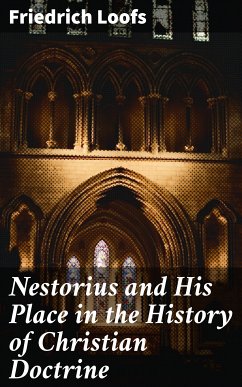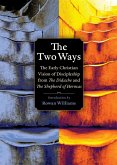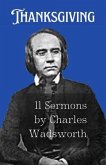In 'Nestorius and His Place in the History of Christian Doctrine' by Friedrich Loofs, the author delves into the controversial figure of Nestorius and his impact on Christian theology. Loofs meticulously examines Nestorius' teachings and the subsequent theological debates that arose, placing his work within the broader context of early Christian doctrinal development. The book is characterized by its thorough analysis and scholarly approach, making it an essential resource for anyone interested in the complexities of early Christian theology. Loofs' writing style is academic yet accessible, making complex theological concepts understandable to a wider audience. This work sheds light on the intricacies of ancient Christian thought and its lasting repercussions on modern theology and religious discourse. Friedrich Loofs, as a prominent scholar of early Christian history, brings a depth of knowledge and expertise to this study of Nestorius, providing invaluable insights into this often misunderstood figure. His expertise in the field allows readers to gain a comprehensive understanding of Nestorius' contributions and doctrinal legacy. I highly recommend 'Nestorius and His Place in the History of Christian Doctrine' to students, scholars, and anyone seeking a deeper understanding of early Christian theology and its implications on contemporary religious thought.
Dieser Download kann aus rechtlichen Gründen nur mit Rechnungsadresse in A, B, BG, CY, CZ, D, DK, EW, E, FIN, F, GR, H, IRL, I, LT, L, LR, M, NL, PL, P, R, S, SLO, SK ausgeliefert werden.









